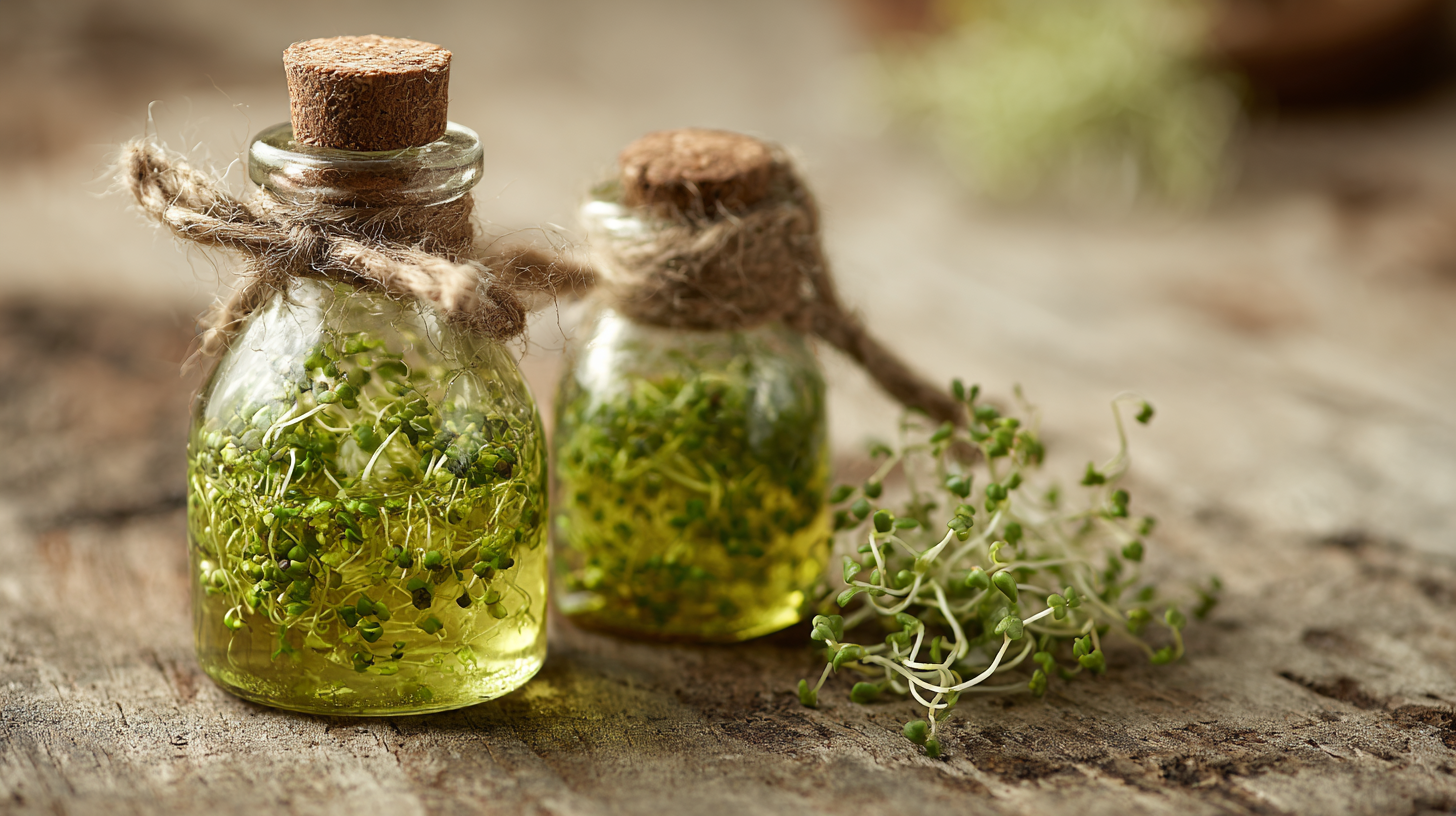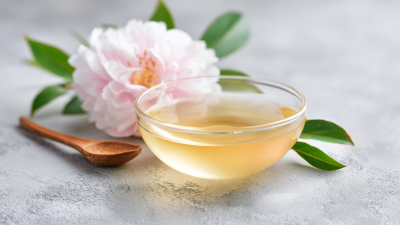Unveiling the Secrets of Phytic Acid Benefits for Skin Health and Beauty
In the pursuit of healthier skin and enhanced beauty, many are turning to natural remedies and ingredients that offer remarkable benefits. One such powerhouse is Phytic Acid, a naturally occurring compound found in various grains and seeds, renowned for its extraordinary properties in skincare. As a gentle yet effective exfoliant, Phytic Acid helps to remove dead skin cells, unclog pores, and brighten the complexion. Beyond its exfoliating prowess, it also boasts powerful antioxidant properties, making it a formidable ally in combating signs of aging and promoting skin health. This article delves into the myriad benefits of Phytic Acid for skin health and beauty, providing readers with a comprehensive guide on how to incorporate this remarkable ingredient into their skincare routines for optimal results. Whether you're looking to enhance your glow or address specific skin concerns, understanding the secrets of Phytic Acid is essential for achieving a radiant complexion.

Understanding Phytic Acid: What It Is and Its Role in Skin Health
Phytic acid, a natural compound commonly found in seeds, nuts, and grains, has garnered attention in the skincare industry for its multitude of benefits. Often classified as an antioxidant, phytic acid plays a pivotal role in promoting skin health by neutralizing free radicals, which can cause oxidative stress and contribute to premature aging. According to a report by the American Journal of Clinical Dermatology, ingredients with antioxidant properties, such as phytic acid, are crucial in skincare formulations, promoting a healthier complexion and enhancing overall skin texture.
In addition to its antioxidant capabilities, phytic acid is known for its ability to gently exfoliate the skin. It acts as a chelating agent, effectively binding to metal ions that can be detrimental to skin health, such as iron and copper. A study published in the Journal of Cosmetic Dermatology highlights that the use of phytic acid in topical formulations not only helps to improve skin tone and texture but can also aid in reducing hyperpigmentation and dark spots. As the beauty industry continues to evolve, phytic acid is set to become a key ingredient for those seeking effective and natural solutions for their skin concerns.
Benefits of Phytic Acid for Skin Health
Top 5 Benefits of Phytic Acid for Skin Beauty and Radiance
Phytic acid, a natural antioxidant found in various seeds and grains, offers significant benefits for skin health and beauty. One of its primary advantages is its ability to combat free radicals, which can lead to premature aging. By neutralizing these harmful molecules, phytic acid helps maintain a youthful appearance and enhances skin radiance.
Another notable benefit is its exfoliating properties. Phytic acid aids in breaking down dead skin cells, promoting a smoother and more refined skin texture. Regular use can enhance the skin's overall appearance, making it look brighter and more vibrant.
For those looking to incorporate phytic acid into their skincare routine, consider using products that contain this ingredient, such as serums or masks. Mixing a few drops of phytic acid serum with your daily moisturizer can enhance hydration while reaping the benefits of this powerful antioxidant. Additionally, always follow up with sunscreen during the day, as exfoliation can make your skin more sensitive to UV exposure.
How to Incorporate Phytic Acid into Your Skincare Routine
Incorporating phytic acid into your skincare routine can be a transformative step towards achieving healthy, radiant skin. This natural compound, found in various plant sources, acts as a gentle exfoliant, helping to remove dead skin cells and promote a smoother texture. To effectively integrate phytic acid, consider starting with products that contain a low concentration, such as cleansers or serums. This allows your skin to acclimate to the ingredient without overwhelming it.
For a more targeted approach, look for nighttime treatments or masks that include phytic acid. Applying these products in the evening gives your skin the opportunity to rejuvenate while you sleep. Additionally, be sure to pair phytic acid with other beneficial ingredients, like hyaluronic acid for hydration or antioxidants for extra skin protection. Always follow up with a good moisturizer to lock in hydration, as phytic acid can sometimes lead to dryness if not balanced correctly. With consistent use, phytic acid can enhance your overall complexion, making it a worthy addition to any skincare regimen.

Comparing Phytic Acid with Other Skincare Ingredients for Optimal Benefits
Phytic acid, often hailed for its antioxidant and chelating properties, stands out as a powerful skincare ingredient. In comparison to other popular components such as alpha hydroxy acids (AHAs) and retinoids, phytic acid offers a gentler yet effective option for skin health. A study published in the *Journal of Cosmetic Dermatology* reveals that phytic acid can enhance skin hydration and provide anti-aging benefits without the irritation commonly associated with more potent acids. It works by binding to minerals and reducing free radicals, making it a perfect candidate for sensitive skin types seeking improvement in tone and texture.
When integrating phytic acid into a skincare regimen, it's essential to combine it with other supportive ingredients for maximum efficacy. For instance, combining phytic acid with vitamin C can amplify its brightening effects, while pairing it with niacinamide enhances barrier function and overall skin health. According to the *International Journal of Cosmetic Science*, a blend of these ingredients has been shown to reduce signs of aging by 30% over a 12-week application period.
**Tips:** Always conduct a patch test when introducing new ingredients to your routine. Start with products that contain lower concentrations of phytic acid and gradually increase usage to assess skin tolerance. Additionally, consider using phytic acid in the evening, as it can help repair and rejuvenate skin while you sleep.
Unveiling the Secrets of Phytic Acid Benefits for Skin Health and Beauty
| Skincare Ingredient | Primary Benefits | Best For | Skin Type | Common Side Effects |
|---|---|---|---|---|
| Phytic Acid | Antioxidant, exfoliation, brightening | Anti-aging, hyperpigmentation | All skin types | Minimal irritation |
| Hyaluronic Acid | Hydration, plumping | Dryness, fine lines | All skin types | None typically |
| Glycolic Acid | Exfoliation, smoother skin | Acne, dullness | Oily, combination | Redness, peeling |
| Vitamin C | Brightening, antioxidant | Dark spots, skin tone | All skin types | Irritation in sensitive skin |
| Retinol | Anti-aging, boosts collagen | Wrinkles, elasticity | Aging skin | Peeling, irritation |
Addressing Common Misconceptions About Phytic Acid and Skin Care
 Phytic acid, often misunderstood in the realm of skincare, boasts numerous benefits that challenge common misconceptions. Many believe that phytic acid only serves as an anti-nutrient found in grains and seeds, but recent studies indicate its significant role in skin health. According to a report by the Journal of Dermatological Science, phytic acid acts as a powerful antioxidant and chelating agent, helping to reduce oxidative stress and enhance skin luminosity. This compound can effectively aid in brightening the skin and minimizing the appearance of dark spots, making it a valuable addition to a tailored skincare regimen.
Phytic acid, often misunderstood in the realm of skincare, boasts numerous benefits that challenge common misconceptions. Many believe that phytic acid only serves as an anti-nutrient found in grains and seeds, but recent studies indicate its significant role in skin health. According to a report by the Journal of Dermatological Science, phytic acid acts as a powerful antioxidant and chelating agent, helping to reduce oxidative stress and enhance skin luminosity. This compound can effectively aid in brightening the skin and minimizing the appearance of dark spots, making it a valuable addition to a tailored skincare regimen.
One prevalent myth is that phytic acid may irritate sensitive skin; however, a study published in the International Journal of Cosmetic Science suggests otherwise. It found that phytic acid is well-tolerated, even in formulations for sensitive skin types, and can help improve the overall texture and tone.
Tips: For those seeking to incorporate phytic acid into their routines, look for serums or creams with a concentration of 1-2%. Always conduct a patch test before introducing new ingredients, especially if you have sensitive skin. Remember, consistency is key; use products containing phytic acid regularly to truly experience its benefits.
Related Posts
-

Understanding the Role of Phytic Acid in Modern Agriculture
-

How to Utilize Ethyl Levulinate for Sustainable Chemical Solutions
-

7 Best Benefits of Using Soybean Oil for Your Health and Cooking Needs
-

5 Essential Tips for Global Buyers on Sourcing Cefotaxime Sodium Effectively
-

Exploring Market Trends for Qibanqing Granules at the 138th Canton Fair in 2025
-

Emerging Trends for Ferulic Acid in the Cosmetics Industry at the 138th Canton Fair 2025





